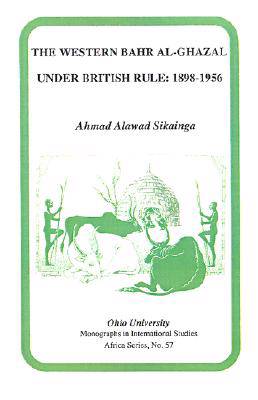
- Afhalen na 1 uur in een winkel met voorraad
- Gratis thuislevering in België vanaf € 30
- Ruim aanbod met 7 miljoen producten
- Afhalen na 1 uur in een winkel met voorraad
- Gratis thuislevering in België vanaf € 30
- Ruim aanbod met 7 miljoen producten
Zoeken
Omschrijving
Western Bahr al-Ghazal is perhaps one of the least known places in Africa. Yet this remote part of the Republic of Sudan can be regarded as a historical barometer, registering major developments in the history of the Nile valley. In the nineteenth century the region became one of the most active slave-exporting zones in Africa. The area is distinguished from the rest of southern Sudan by its veneer of Muslim influence and an Arabic pidgin. British officials regarded it as a Muslim enclave and in the twentieth century, western Bahr al-Ghazal became a laboratory in which the British colonial administration applied one of its most controversial policies in the Sudan, the so-called Southern Policy. Several decades of colonial rule failed to establish any significant links between the western Bahr al-Ghazal and the world economy. It is hoped that this book will contribute to the understanding of the general impact of colonialism on rural societies in the southern Sudan and the roots of their underdevelopment.
Specificaties
Betrokkenen
- Auteur(s):
- Uitgeverij:
Inhoud
- Aantal bladzijden:
- 216
- Taal:
- Arabisch, Engels
- Reeks:
Eigenschappen
- Productcode (EAN):
- 9780896801615
- Verschijningsdatum:
- 1/11/1990
- Uitvoering:
- Paperback
- Formaat:
- Trade paperback (VS)
- Afmetingen:
- 137 mm x 215 mm
- Gewicht:
- 285 g

Alleen bij Standaard Boekhandel
+ 91 punten op je klantenkaart van Standaard Boekhandel
Beoordelingen
We publiceren alleen reviews die voldoen aan de voorwaarden voor reviews. Bekijk onze voorwaarden voor reviews.











